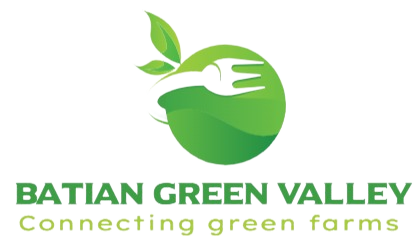5 Benefits of organic farming
Organic farming is a system of farming that relies on natural processes. That is animal and plant wastes, nitrogen-fixing cover crops rather than the use of synthetic inputs. Organic farmers rely on practices like crop rotation, composting to build fertility, and the use of mechanical methods to control weeds. They also use biological products for disease and pest control.
Organic farming reduces soil erosion, recycles animal waste from the farm, and uses fewer and less harsh pesticides. Further, it decreases nitrate leaching into groundwater and surface water. Its main objective is founded on soil management, conservation, ecological balance, promoting the nutrient cycle, and conserving biodiversity.
Characteristics of organic farm
- An organic farm is about organic carbon in the soil
- Presence of dry matter on the soil surface commonly known as mulching
- Presence of microbes or earthworms below the dry matter
- Presence of moisture in the soil
- Absence of exposure of the soil to sun/ rain/ winds.
- Natural livestock and poultry production
- Variety of crops that support different types of soil microorganisms, and insects and promote soil management
- Organic weed and pest control which includes mechanical tillage, mulching, cover crops, crop rotation, intercropping, minimal tillage, and green manure.
- Dependency on beneficial predatory insects, and soil microorganisms for pest control
Benefits of organic farming
Environmental benefits
Organic farming is environmentally friendly, it’s chemical free hence safe for the environment. It promotes sustainable development. It reduces exposure to harmful chemicals or pesticides that leads to contamination of the soil and soil erosion. This farming discourages the use of harsh chemicals to preserve the natural environment. It also promotes the use of natural cultivation practices such as mulching and use of cover crops which retain the soil’s natural ability to thrive sustainably. A green environment promotes diversity and ecological harmony hence bringing about environmental sustainability.
Economic Benefits
In organic farming, you use locally available inputs (animal and plant wastes) with no exposure to synthetic fertilizers and pesticides, therefore, reducing expenses. The growth of the organic food industry as well as farmers’ markets offering organic products guarantees high profitability. Other current trends are the establishment of natural foods; plant-based superfoods, alternative dairy products, and plant-based proteins.
Soil Health benefits
Organic farming majorly relies on natural ways of nourishing the soil. Such ways include using green manure, compost, and natural mineral powders. These methods improve the soil structure, fertility, and water-holding capacity. There are increases in the soil microbial activities that release soil nutrients.
Other practices such as the use of cover crops and crop rotation maintain the soil’s organic matter. Through organic residues that are recycled back into the soil.
Human health improvement
There is a huge demand for organic products since most people have become aware of their health benefits, they are also considered safer. An organic product contains lower levels of chemicals, therefore reducing health risks for consumers. For farmers, farmworkers, and their families there is minimal exposure to toxic and persistent chemicals on the farm, food, and water.
Generates incomes
Major opportunities in organic framing have come up. Organic vegetables and fruit production are notable ventures. These can generate income due to the high demand for organic products. Another option is the production of organic medicines from natural products. This can be another avenue of income generation.
Many people have embraced this new concept and new businesses have been set up.
Conclusion
The overall goal of organic farming is to create a sustainable and efficient system that works in harmony with the natural world. Organic farming extensively relies on nourishing the soil naturally and offers various benefits as outlined above.

